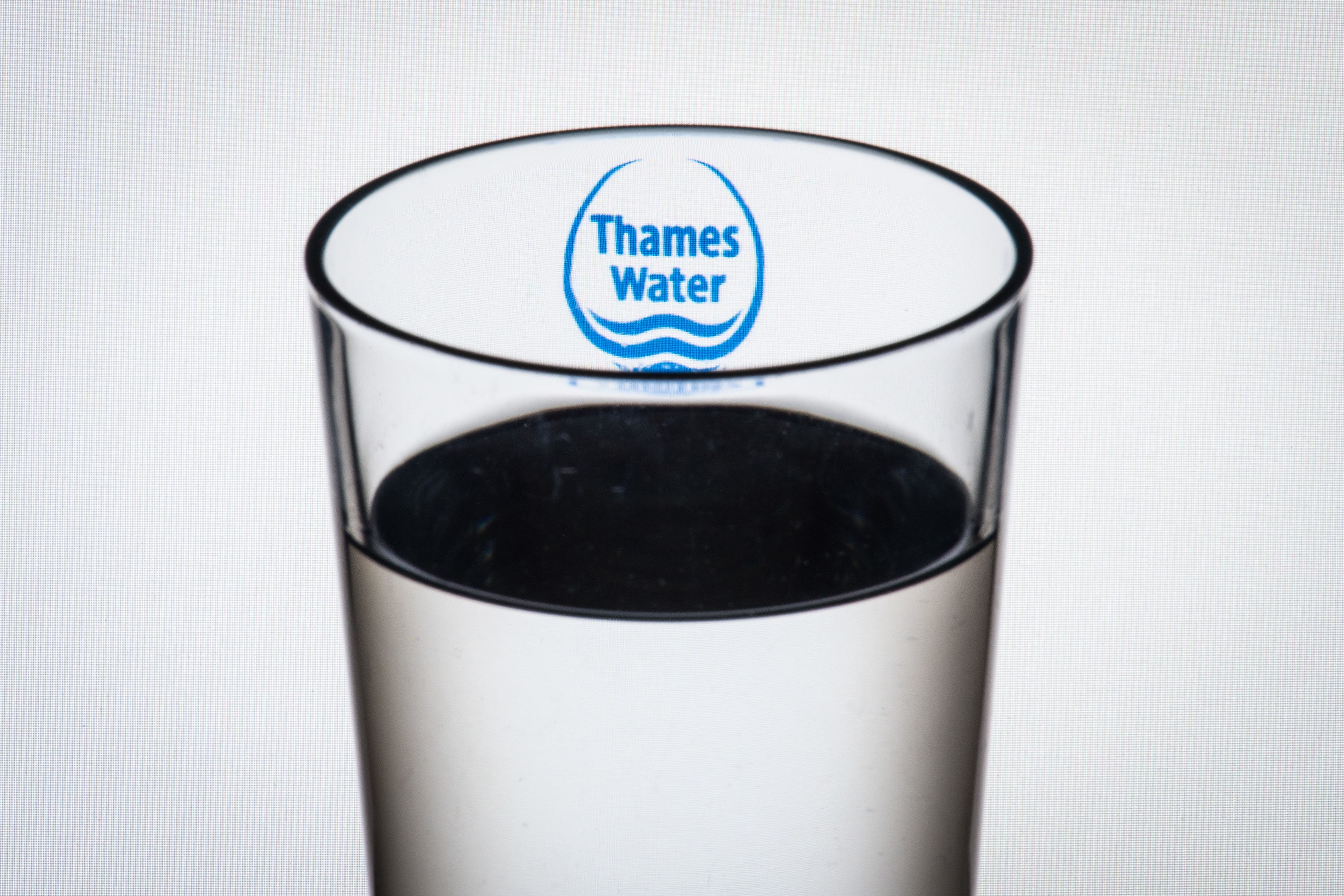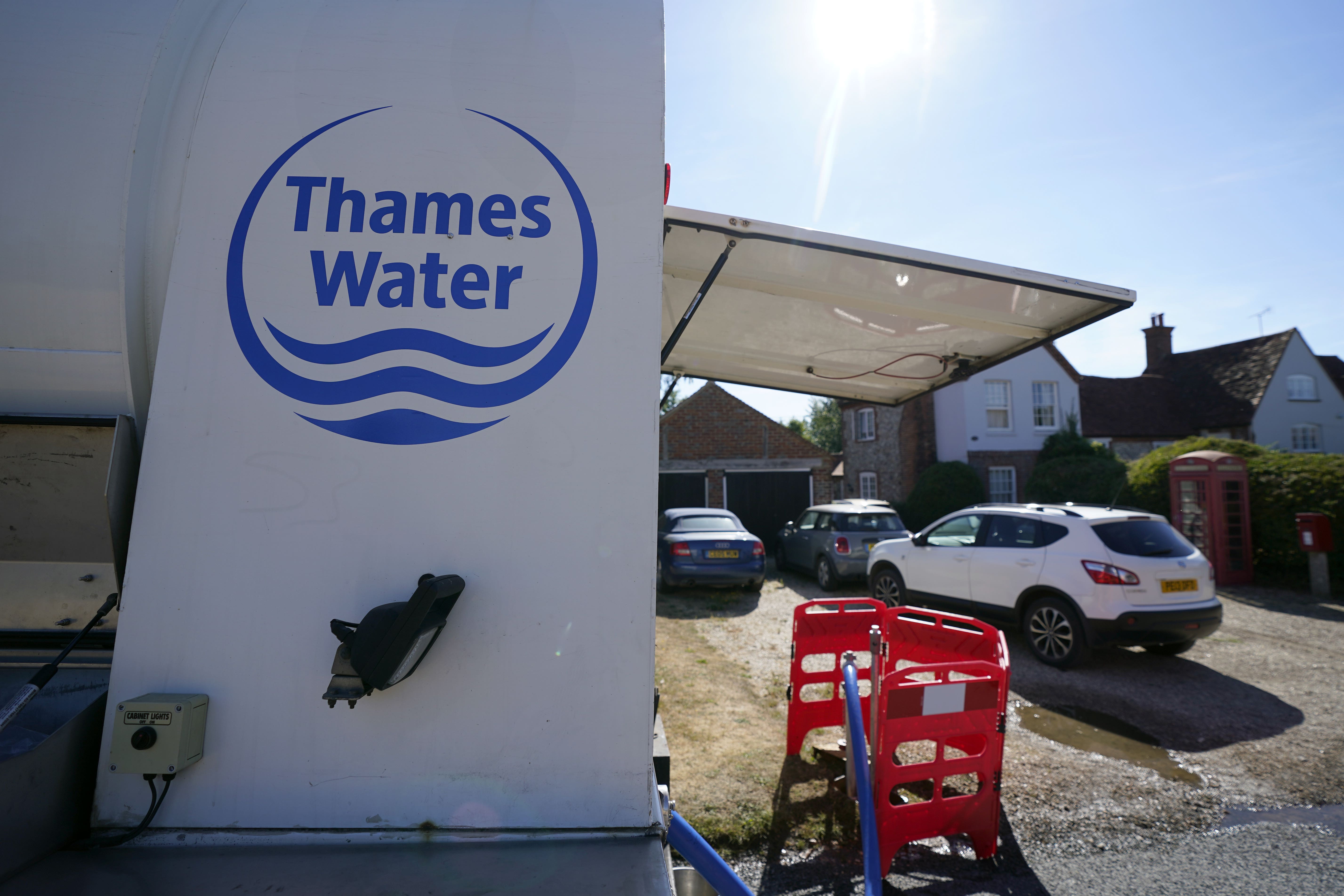Thames Water pays out £158m to shareholders despite £15bn debt and sewage leak failings
Thames Water says it has cash to last until May 2025 and if it fails to find investment, Sir Keir Starmer will face a decision on measures that would effectively see it nationalised

Your support helps us to tell the story
From reproductive rights to climate change to Big Tech, The Independent is on the ground when the story is developing. Whether it's investigating the financials of Elon Musk's pro-Trump PAC or producing our latest documentary, 'The A Word', which shines a light on the American women fighting for reproductive rights, we know how important it is to parse out the facts from the messaging.
At such a critical moment in US history, we need reporters on the ground. Your donation allows us to keep sending journalists to speak to both sides of the story.
The Independent is trusted by Americans across the entire political spectrum. And unlike many other quality news outlets, we choose not to lock Americans out of our reporting and analysis with paywalls. We believe quality journalism should be available to everyone, paid for by those who can afford it.
Your support makes all the difference.Thames Water has confirmed it paid two fresh dividends worth £158.3 million in March, as the heavily indebted company said it is unlikely to raise fresh funds before December.
The water company, which is creaking under a debt pile of more than £15 billion, said it paid the dividends to help fund two of its holding companies, Kemble Eurobond and Thames Water Limited, which are in financial trouble.
Ofwat has already said it is “minded” to take action against Thames Water for smaller £37.5 million dividend payment in October 2023.
Under new rules introduced last year, water companies with poor financial and environmental records are not allowed to pay dividends.
Thames Water has faced widespread criticism for levels of sewage leaking into waterways. Events including this year’s Boat Race and Henley Royal Regatta faced warnings over levels of E.coli in the water.
It paid a total of £196 million in dividends last year.

The firm said it is still looking for fresh funding needed to maintain and update its infrastructure, after investors pulled the plug on £500 million of emergency cash earlier this year.
It said it has £1.8 billion of liquidity, enough to fund its operations until the end of May next year, but that it needs new investment.
Thames Water said profit increased to £75.4 million for the year ending March 31, up on a £30 million loss the year before.
Revenue increased 11% to £2.5 billion.
Pollution incidents increased to 350, up on 331 last year, which it blamed on a rainier-than-expected year.
The number of “serious pollutions” decreased by 18%, Thames Water said.
It said it spent £2 billion on maintaining and updating its infrastructure last year.
The financial update will be followed on Thursday by a draft verdict from Ofwat on water companies’ five-year spending plans and bill increases to 2030.
That will kick off six months of negotiations with Ofwat, ahead of its final decision in December.
The process of securing new cash is “not expected to conclude” until after Ofwat’s final decision.
Chief executive Chris Weston said Thames had taken “informal soundings which have shown there is interest in the market”.
If it ultimately fails to attract fresh funding, Thames Water’s fraying finances could present Sir Keir Starmer’s newly elected Labour government with a significant industrial crisis.
A blueprint codenamed Project Timber was being drawn up in Whitehall in the spring, according to reports, which could see the company effectively nationalised.
Under the plans, the company would be placed in a form of special administration in the scenario that its parent company fails.
Mr Weston added that it is “not in the interests” of customers or investors for the company to fall into government hands.
Communities minister Jim McMahon said on Tuesday morning: “We recognise that, over the last 14 years, frankly, the water industry hasn’t been regulated anywhere near as firmly as it should have been, and we haven’t seen the investment to deal with the sewage scandal.”
He said there is a need for reform and for regulation to be looked at, adding: “The days of putting shareholder interest above the national interest, frankly, can’t carry on and so we do need to look at that and Thames do need to look at their own house and get it in order.”
Mr McMahon said there is “no programme of nationalisation for the water industry” when asked what the plan is if the company collapses.
He did however say there is “no provision in law for a water company to stop providing water”, adding: “We need to be very clear there is always a contingency in place.”
Thames Water, which has 16 million customers in London and the Thames Valley region, put forward plans in April that would see spending rise to £19.8 billion to update its infrastructure and reduce sewage spills.
However, that would also involve increasing customer bills by 44%, a figure which has prompted backlash from consumer groups.
Meanwhile, the process of securing new cash is “not expected to conclude” until after Ofwat’s final decision on Thames’ business plan in December.
Any increase in bills would be greeted with anger, after Thames Water and other water companies’ disastrous recent environmental records sparked a nationwide scandal over pollution.
Thames said pollution incidents increased to 350, up on 331 last year, which it blamed on a rainier-than-expected year.
The number of “serious pollutions” decreased by 18%, Thames Water said.
When questioned on the issue on Tuesday, Mr Weston said: “You might not like the answer, but rain has a big impact on spills.”
It comes amid reports that Sir Keir has been briefed that the poor state of Thames Water’s physical infrastructure presents a “critical risk” to the country.
Fears about the company include its management of sites that provide drinking water and sewage treatment for London and the Thames Valley, The Guardian newspaper reported.
Thames Water said it spent £2 billion on maintaining and updating its infrastructure last year.
The prime minister’s spokesperson told reporters on Monday: “The government has said in its manifesto that we will put failing water companies into special measures and they will have no choice but to clean up their act.
“We talked about giving regulators the power to block payment of bonuses to executives who pollute our waterways and impose automatic and severe fines on them for wrongdoing.”